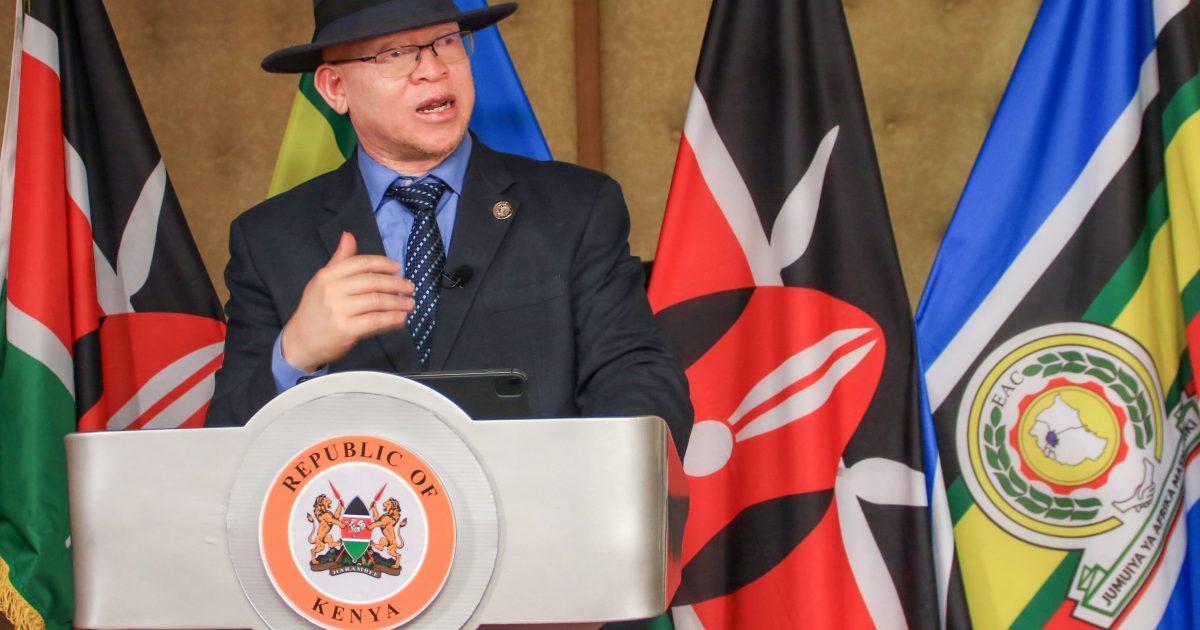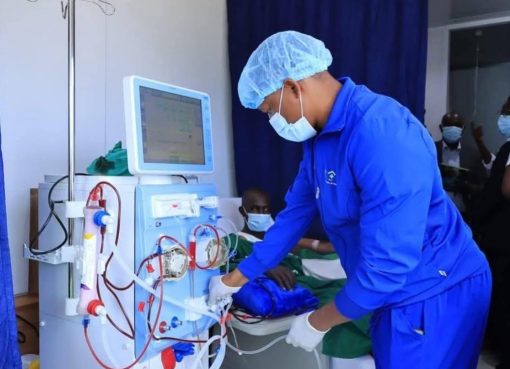As Kenya faces economic challenges and growing infrastructure needs, Public-Private Partnerships (PPPs) are proving to be a vital solution for the country’s development. These partnerships are not just financial arrangements; they offer innovative ways to improve services and support sustainable growth. The government has made it clear that it is committed to strengthening these partnerships.
During a press briefing, today, Government Spokesperson, Dr. Isaac Mwaura stated, “The Government remains committed to strengthening Public-Private Partnerships (PPPs) as such an arrangement is vital for sustainable development. Today’s economic challenges make it essential for Kenya to embrace PPPs as an alternative to traditional financing models.”
Dr. Mwaura noted that PPPs help the government share the financial burden with private companies, allowing resources to be used more efficiently, adding that that beyond infrastructure, PPPs offer Kenya many advantages as they help reduce public debt since the government can allocate resources to other priority sectors while the private sector shares project risks.
He said that the government can therefore redirect more money toward other essential areas such as healthcare and education thus benefiting the public.
The Government Spokesperson added that PPPs applies private sector efficiency and expertise, making projects more cost-effective. “Private sector efficiency and modern management practices make PPPs more cost-effective, delivering high-quality services and ensuring better value for Kenyans,” Dr. Mwaura noted.
Dr. Mwaura said that Kenya is already seeing the positive effects of PPPs in successful projects such as the Nairobi Expressway and the Ruiru Affordable Housing Project. Another significant initiative, he added, is the Adani JKIA Privately Initiated Program (PIP), a Sh270 billion project aimed at expanding Jomo Kenyatta International Airport, which is now strained, due to increasing passenger numbers.
“Notable projects such as the Nairobi Expressway and the Ruiru Affordable Housing Project illustrate how public-private partnerships (PPPs) are already transforming Kenya,” Dr. Mwaura highlighted.
He noted that Kenya’s focus on PPPs mirrors successful examples from around the world, such as the expansion of Heathrow Airport in the UK and John F. Kennedy Airport in the USA.
“These examples show that with the right partnerships, countries can effectively address their infrastructure needs. By adopting this model, Kenya is building a strong foundation for the future where public and private interests, work together for the benefit of all,” he said.
Dr. Mwaura clarified that on October 24, 2024, President William Ruto, defended the government’s commitment to Public-Private Partnerships (PPPs), as a way to support national development without placing additional burdens on taxpayers.
He said the President cited the Standard Gauge Railway (SGR) as a prime example of success achieved through PPPs, highlighting its role in boosting regional trade, improving connectivity, and reducing transportation costs.
“PPPs are meant to ensure that the government does not burden Kenyans with more taxes or loans in the financing of development projects,” he stated.
President Ruto also explained, “It is important to appreciate that the partnership between the public and the private sector gives us a win-win outcome to deliver public services using the efficiency and investment of the private sector.”
During the groundbreaking ceremony for the Orpower 22 Geothermal Power Plant, The President noted that the Sh12 billion investment by the Kaishan Group was evidence of the strong confidence, foreign investors have in Kenya’s PPP framework, which continues to attract investment, while addressing infrastructure needs.
Dr. Mwaura stated that the Standard Gauge Railway has greatly benefited Kenyans, especially in easing transport challenges, adding that it has improved the movement of goods and passengers while providing a reliable alternative to road transport.
He noted that this has reduced travel time and logistics costs, helping both consumers and businesses, adding that the Nairobi Commuter Rail Project is modernizing the city’s rail transport to reduce congestion in urban areas.
“Together, these initiatives are crucial for driving economic growth and supporting Kenya’s development goals,” Mwaura said.
Government Spokesperson stressed that Public-Private Partnerships are essential for Kenya’s future, noting that by leveraging the strengths of the private sector, the government can effectively tackle pressing infrastructure challenges and create a brighter future for all Kenyans.
“The potential of PPPs is clear: working together, we can build a stronger nation that thrives on collaboration and shared success,” he said.
By Rose Chepkoech





